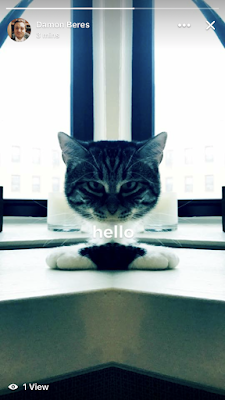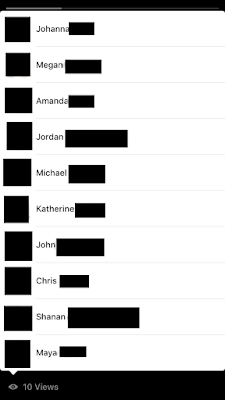Facebook's new "Stories" update is here, and it ruins the best part about the entire social network: Mindlessly plumbing your friends' lives without fear of getting caught.
When you watch a friend's Story — which exists for 24 hours and is comprised of one or more photos or short videos — that friend will know you're creeping. This is how Stories work on basically every platform that supports them (Snapchat, Instagram), but in the context of Facebook, it's kind of messed up.
First, for reference, here's what that looks like:


So far, so good. But the list of people who viewed my content is an awkward who's-who that includes a couple of folks I probably wouldn't even make small talk with at a party. Which is fine! I appreciate the content views, friends. It's just that I haven't seen one or two of you since eighth grade, and, well, here you are, looking at my cats.
Here's the rub
Facebook is THE BIG ONE, a monolithic social media force that shoves everyone you know into an interactive database of photos, text and video. But it doesn't want you to think of it like that — it wants to be a place where you talk to your friends and enjoy yourself.
Thus, it's done whatever it can to ape Snapchat — a much smaller rival that specializes in intimate messaging. But Stories don't make sense on a platform with years and years of social baggage.
Facebook's algorithms are smart enough to keep your News Feed filled with people and brands you actually enjoy interacting with, but Stories are a bit messier. They're supposed to depict you unfiltered, in the moment — which doesn't really work if your audience includes the kid from your middle school English class, your high school economics teacher, someone you slept with once, your best friend, someone you're trying to be friends with, and your boss.
Even as Facebook is fundamentally about connecting real people, there's something about the illusion of anonymity that's really important to the platform. It can be fun and kind of addictive to look through profiles without "liking" anything and giving yourself away.
The simple act of scrolling through your News Feed and quietly admiring that one funny person who always pops up — even though you haven't had a real conversation with them in more than a decade — is probably the primary way most of us use the app to begin with.
So, in its rush to wipe Snaphat away and become the main place for social sharing online, Facebook has inadvertently highlighted that it's at its best when it does a slightly less-good job of connecting you to your friends. Funny how that works.
Not that it matters much: Few people I'm friends with appear to be using Stories to begin with. As of this afternoon, I had three to choose from — out of a pool of 943 friends.

Comments
Post a Comment